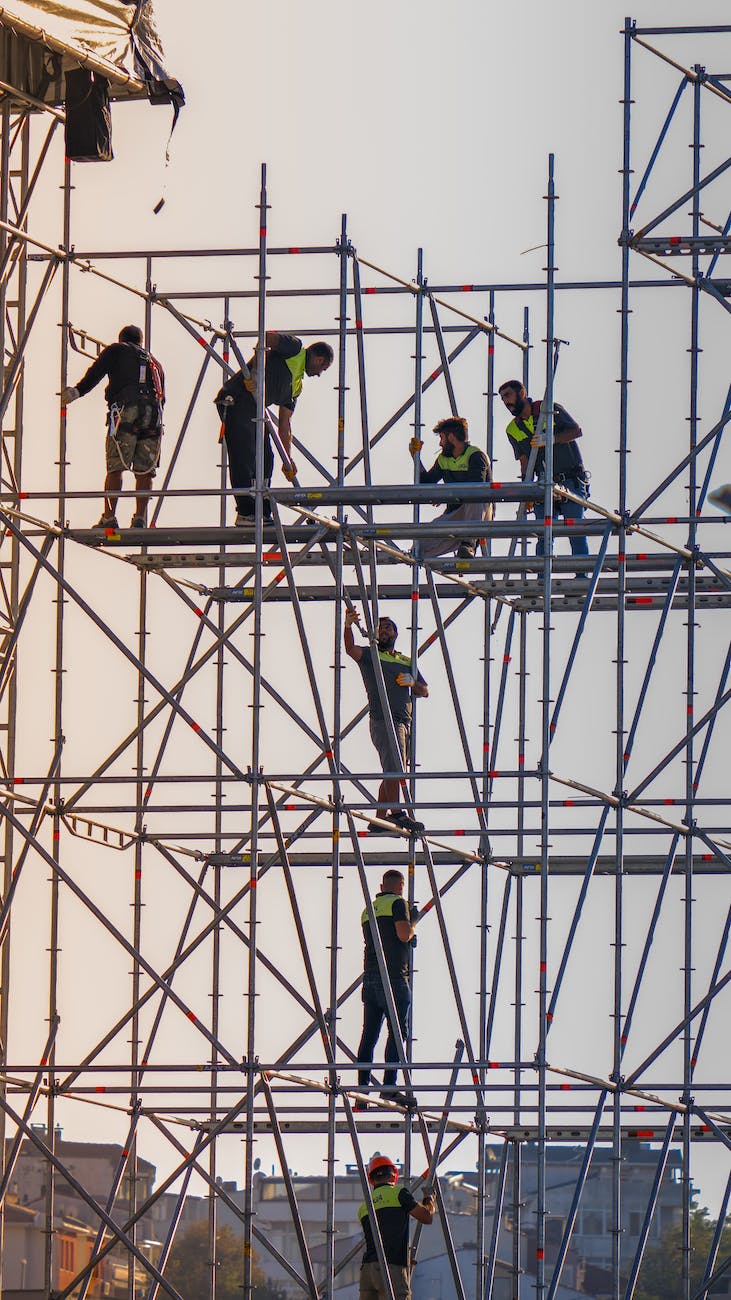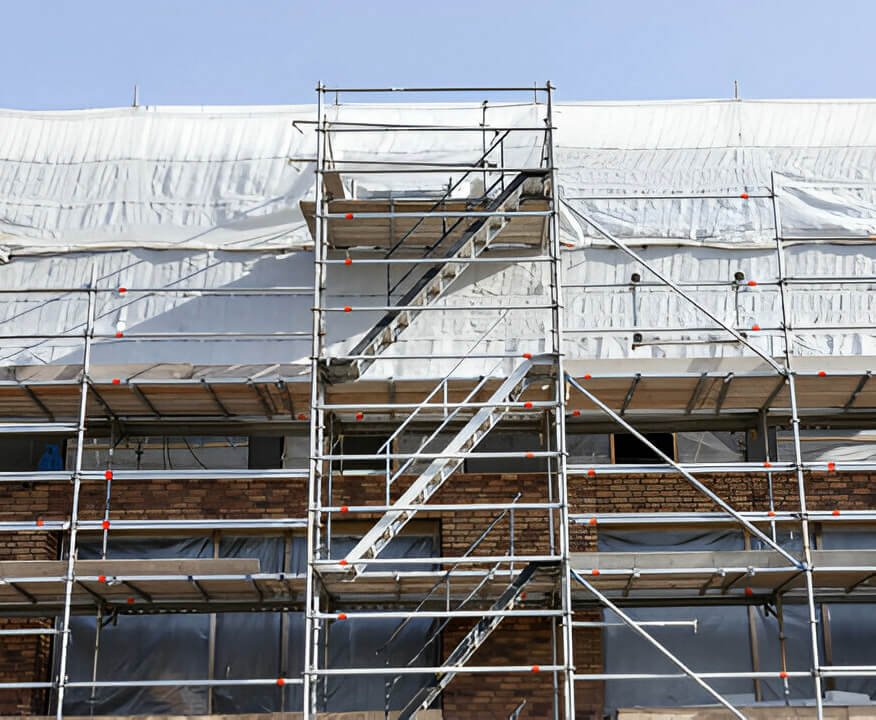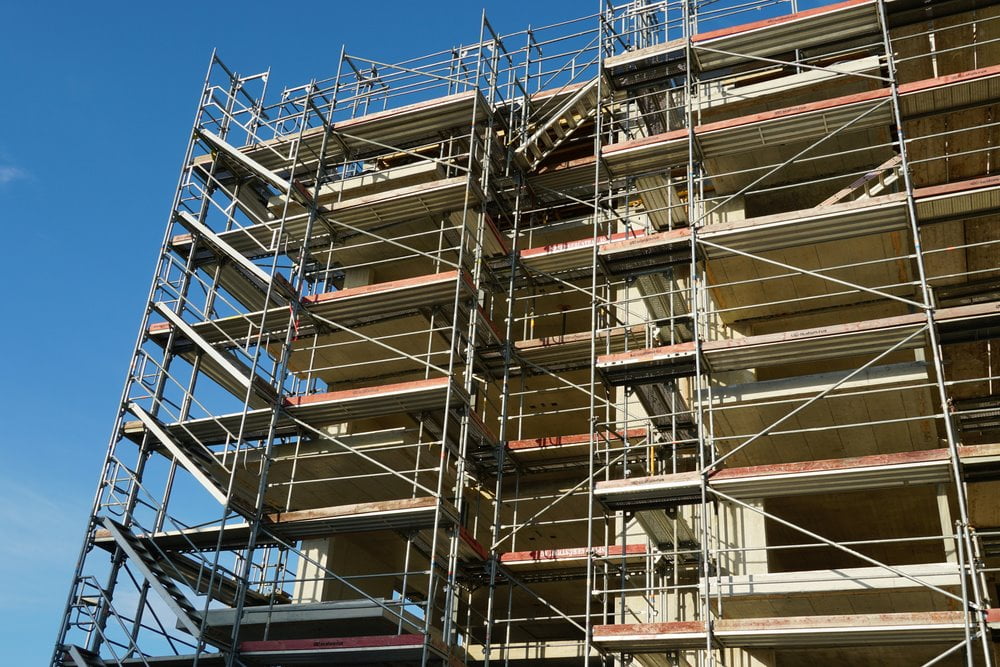Affordable and Professional Scaffolding Cobham Services Available Now
Affordable and Professional Scaffolding Cobham Services Available Now
Blog Article
Exploring the Numerous Kinds Of Scaffolding Utilized in Building Projects
The building and construction sector depends greatly on various sorts of scaffolding to fulfill particular task requirements, each offering unique advantages and applications. Standard structure scaffolding provides a sturdy structure for general tasks, while suspended scaffolding is essential for service skyscraper frameworks. Other choices, such as system and rolling scaffolding, accommodate effectiveness and movement, specifically. Furthermore, the cantilever alternative confirms important in city environments where space is constricted. Comprehending the subtleties of these scaffolding types is crucial for optimizing safety and security and performance on building websites, triggering a more detailed evaluation of their special characteristics and applications.

Traditional Structure Scaffolding
Conventional framework scaffolding is one of one of the most commonly used techniques in the construction sector due to its toughness and versatility. This system is composed of horizontal and upright frameworks that are assembled to produce a stable system for workers and products. The main components consist of vertical blog posts, horizontal journals, and diagonal dental braces, which together give a strong structure that can sustain considerable lots.
One of the crucial benefits of typical structure scaffolding is its adaptability to different building and construction tasks, varying from residential buildings to big business frameworks. The modular layout permits for easy assembly and disassembly, making it efficient for both long-term and short-term projects. Additionally, the system can be personalized in height and width, accommodating different building designs and site problems.
Safety is paramount in scaffolding applications, and conventional frame systems are geared up with guardrails and toe boards to avoid falls and guarantee worker protection. Normal assessments and adherence to security policies are essential in maintaining the honesty of the scaffold (Scaffolding). On the whole, conventional frame scaffolding remains a basic option in the building industry, giving a trusted system for labor and enhancing total job effectiveness

Suspended Scaffolding
Put on hold scaffolding uses an unique service for construction tasks that need accessibility to elevated surface areas, specifically in circumstances where typical frame scaffolding might be impractical. This kind of scaffolding is commonly suspended from the roofing or top levels of a structure, making use of a system of sheaves, ropes, and platforms to develop a functioning space that can be gotten used to different elevations.
Among the key benefits of put on hold scaffolding is its flexibility. It can be easily repositioned or reduced to fit adjustments in building and construction needs, making it perfect for tasks such as window setup, frontage job, and upkeep on skyscraper structures. Furthermore, the very little impact of put on hold scaffolding enables much better use ground area in metropolitan atmospheres, where area is typically restricted.
Security is an important factor to consider in the usage of suspended scaffolding. Appropriate rigging and securing systems have to be employed to guarantee stability and prevent accidents. Operators must additionally be learnt the secure use this devices. In general, suspended scaffolding provides a efficient and efficient solution for accessing hard-to-reach locations in different building scenarios, boosting both performance and security on site.
System Scaffolding
System scaffolding, frequently considered a modern-day solution in the scaffolding market, includes pre-engineered parts that can be rapidly constructed and adapted for numerous building tasks. Scaffolding. This sort of scaffolding is identified by its modular design, which permits flexibility and performance on task websites, his explanation accommodating various elevations and structural needs
Generally made from high-strength steel or light weight aluminum, system scaffolding provides boosted resilience and security. The parts include upright blog posts, horizontal ledgers, and angled dental braces, which interconnect safely, making certain a robust framework. The style usually incorporates standard installations, simplifying assembly and disassembly processes, consequently reducing labor time and costs.

Rolling Scaffolding
Rolling scaffolding is a functional option to traditional set scaffolding, developed for mobility and simplicity of use on building and construction sites. This sort of scaffolding contains a platform sustained by structures with wheels, permitting employees to quickly relocate it as required. The flexibility attribute substantially enhances efficiency, as it reduces downtime related to dismantling and setting up dealt with scaffolding.
Commonly built from light-weight materials such as light weight aluminum or steel, rolling scaffolding uses a sturdy yet portable remedy for projects calling for regular repositioning - Scaffolding. It is specifically advantageous in tasks such scaffold board table as paint, drywall setup, and electric job, where access to different elevations and areas is necessary
Safety is vital in rolling scaffolding design, with functions such as securing wheels to prevent unexpected movement when in operation, and guardrails to shield workers from falls. In addition, lots of models are adjustable in height, accommodating numerous task demands.
Cantilever Scaffolding

The style of cantilever scaffolding typically entails utilizing braces or arms anchored to a structure or structure, making it possible for the platform to prolong external safely. Safety and security is critical; hence, these scaffolds should be engineered to hold up against different lots and ecological problems. Routine evaluation and upkeep are necessary to make certain structural integrity and employee safety.
Cantilever scaffolding is favored for its convenience and effective usage of area, making it a preferred choice in metropolitan atmospheres where space restrictions prevail. Furthermore, it assists in much easier access to high elevations, eventually adding to the overall effectiveness of construction projects. As with all scaffolding kinds, correct training and adherence to security standards are important for employees making use of cantilever scaffolding.
Conclusion
Typical structure scaffolding provides security, while suspended scaffolding offers convenience for elevated tasks. System scaffolding promotes fast assembly, and rolling scaffolding boosts flexibility for differing work environments.
Traditional structure scaffolding gives a tough structure for general jobs, while suspended scaffolding is necessary for work on skyscraper structures.Moving scaffolding is a versatile option to typical fixed scaffolding, designed for wheelchair and simplicity of use on building and construction sites. As with all scaffolding kinds, proper training and adherence to safety and security requirements are crucial for employees utilizing he said cantilever scaffolding.
Traditional structure scaffolding offers security, while suspended scaffolding uses flexibility for elevated tasks. System scaffolding promotes quick setting up, and rolling scaffolding improves movement for differing job environments.
Report this page